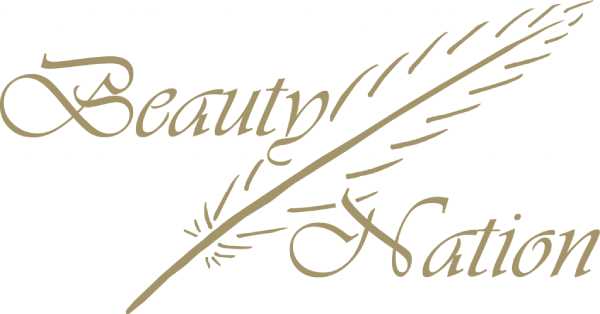Menopause Treatment
Synthetic Drug
There are many other natural health advocates who offer many alternative hormone combinations including the naturally occurring estrogens and progesterone, tailored to the needs and comfort of the individual woman.
Natural hormones, as opposed to the semi-synthetic or synthetic which are foreign to the body, have fewer side effects than the standard HRT offered.
Women with a lot of body fat continue to be exposed to plenty of endogenous estrogens and not enough progesterone and these women may reach hormonal balance by taking natural progesterone only, or improving their eating patterns.
Because concerned that the narrow focus on estrogen replacement as the solution to osteoporosis and cardiovascular disease encourages people to overlook other obvious and important approaches to building health.
No matter what you decide about any prescription medication, we strongly suggest that you embrace an ever healthier lifestyle.
That having been said, we all realize it may be too difficult to undertake a healthier lifestyle at this particular time in your life. Or you may not have access to a health care professional prepared to help you develop and monitor a program of natural alternatives to HRT.
For that and other reasons, HRT may be the most attractive option for personal reasons and may feel “right” to you and your doctor. Most patients have felt strongly both ways and this is a personal and ethical as well as medical decision.
Some women refuse to take Premarin, a synthetic estrogen made from the urine of pregnant mares, because of allegations that the horses are kept penned up and transported under less than humane conditions.
Today, you can choose among several types and forms of estrogen. The most popular type of estrogen used after menopause is estradiol; two other bio-identical estrogens known as estrone and estriol. If you have an intact uterus, whenever you take any type of estrogen you should also take progesterone or progestin.
However, it is important to remember that balancing estrogen with progesterone is also required for the ideal health of the brain, bones, heart, and other tissues.
Natural Food For Menopause
Experts, you, and I all would agree that the food you eat is your primary source of these nutrients. But many nutrition experts believe food can and should be our only source. Supplements aren’t necessary if we just eat a “balanced diet”. However, it is difficult to eat a “balanced diet” adequate in all the essential vitamins, minerals, and fatty acids.
A large survey showed that less than 10 percent of the population eats the recommended five servings of fruits and vegetables. We convince ourselves that our lives are too busy and unpredictable, and that good food isn’t always available.
Since this is still a hotly debated subject, firm scientific support on plants and herbs shows how beneficial is a supplement. Food that is plentiful of minerals, vitamins, soy, and phytoestrogens, which are beneficial to women’s health and menopause:
Fruits and Vegetables – Apples, cherries, figs, dates, apricots, olives, plums, broccoli, cauliflower, brussels sprouts, cabbage, eggplant, tomatoes, garlic, onions, potatoes, alfalfa sprouts, peppers, chilies, carrots, yams.
Herbs – Alfalfa (sprouts, powder, and plants), garlic, sprouted green peas, celery, anise seed, coconut, fennel, licorice, licorice root, Pueraria roots, parsley, red raspberry, sage, oregano, red clover, thyme, turmeric, hops, verbena, brewer’s yeast, flaxseed
Beans, Grains, Nuts and Seeds – Peanuts, cashews, almonds, peas, garbanzo beans, barley, brown rice, bulgur, oats, corn, wheat, wheat germ, rye.
Soy products – Soybeans and soy-based foods such as tofu, miso, soy milk, and soy supplements.
Ease Menopause Naturally
Many cultures traditionally use specific plant foods and products to gently support women through menopause. We now are discovering that one reason for their effectiveness is that certain foods contain chemicals or nutrients that have an estrogen-enhancing or estrogen-like effect. Although this is a large and varied group of chemicals;
They are NOT true estrogens such as are produced by our bodies, for simplicity’s we will call them “plant estrogens.”
These chemicals are just beginning to be understood, but it seems that they act in many different ways to normalize or balance hormones. In this sense, plant estrogens (or phytoestrogens) are “adaptogens” like the herb ginseng and Pueraria Mirifica,
Helps your body adapt and find a healthy balance.
Sometimes phytoestrogens act like weak estrogens; they lock onto the estrogen receptors of your cells and stimulate them only partially. Thus, if you have too much estrogen, plant estrogens block its stronger effects.
If you have too little estrogen, high doses of some plant estrogens can themselves act as estrogens and counteract that imbalance as well.
Another mechanism of effect seems to be to change the way our bodies react to the estrogen we have. Some change how the estrogen is broken down or excreted. And still, other plant estrogens affect our body’s ability to convert other hormones to estrogen.
Because these chemicals work in many different ways, they fall under many different chemical classes. A molecule can look totally different from estrogen except for two uniquely positioned chemical appendages, and still fit the lock as an estrogen-like key.
Some of the most powerful of these look-alikes you may hear about include coumestrol, genistein, and daidzein; the latter two are lignans, a component of fiber that our intestinal bacteria convert into compounds that have weak estrogenic and anti-estrogenic effects. There are unanswered questions about phytoestrogen dosage and safety.
Theoretically, one might wonder if they could stimulate hormone-sensitive cancers such as breast cancer. On the other hand, these substances could help explain why Japanese, Chinese and Asian women who eat a traditional diet high in soybean foods have a lower rate of breast cancer and nearly none of our common menopausal symptoms.
The weak phytoestrogens could be blocking the cancer-promoting effects of strong estrogens while being powerful enough to minimize menopausal symptoms.
Low-fat and high-fiber diets may be important, but they are not the only factors influencing hormone production and metabolism. A renowned Finnish researcher in this field suggests that the risk for many Western diseases, including breast and prostate cancers, might be reduced by changing our diets to increase plant estrogens.
Studies suggest that the genistein blocks the enzyme that makes normal cells cancerous, and thus may affect non-hormone-related cancers as well.














